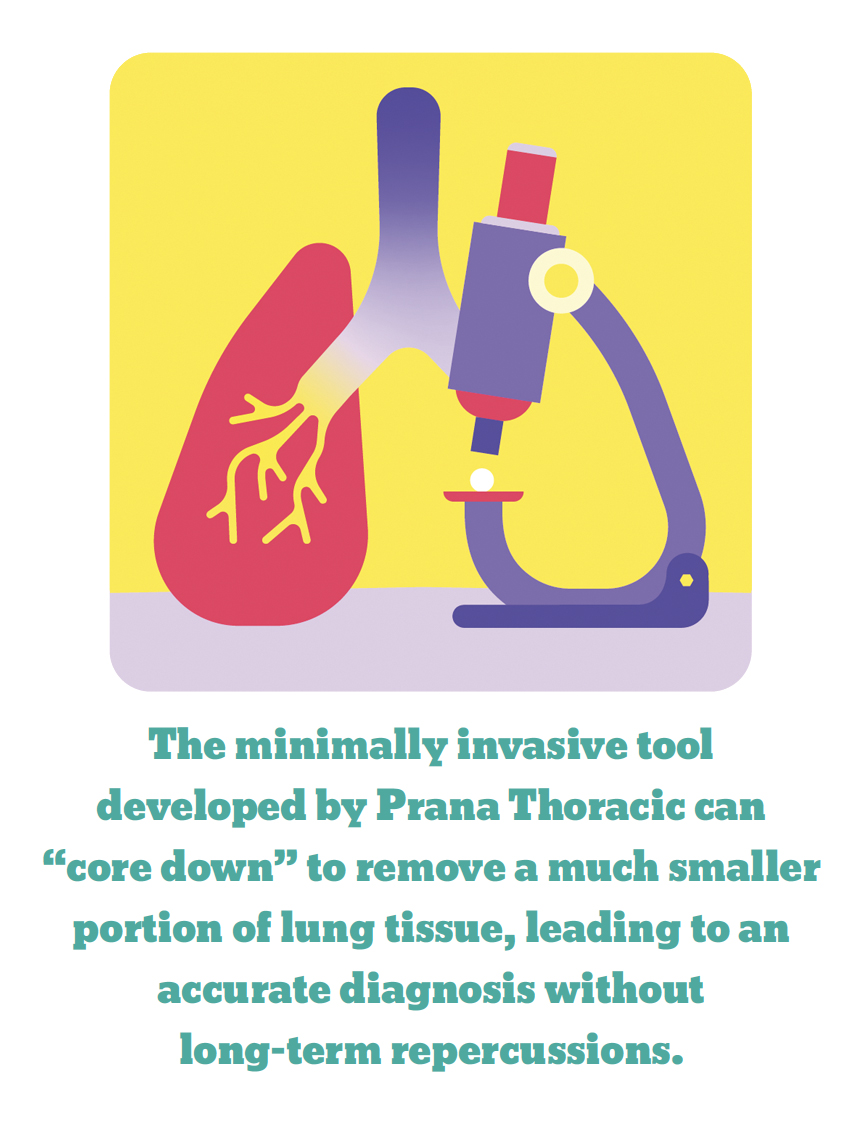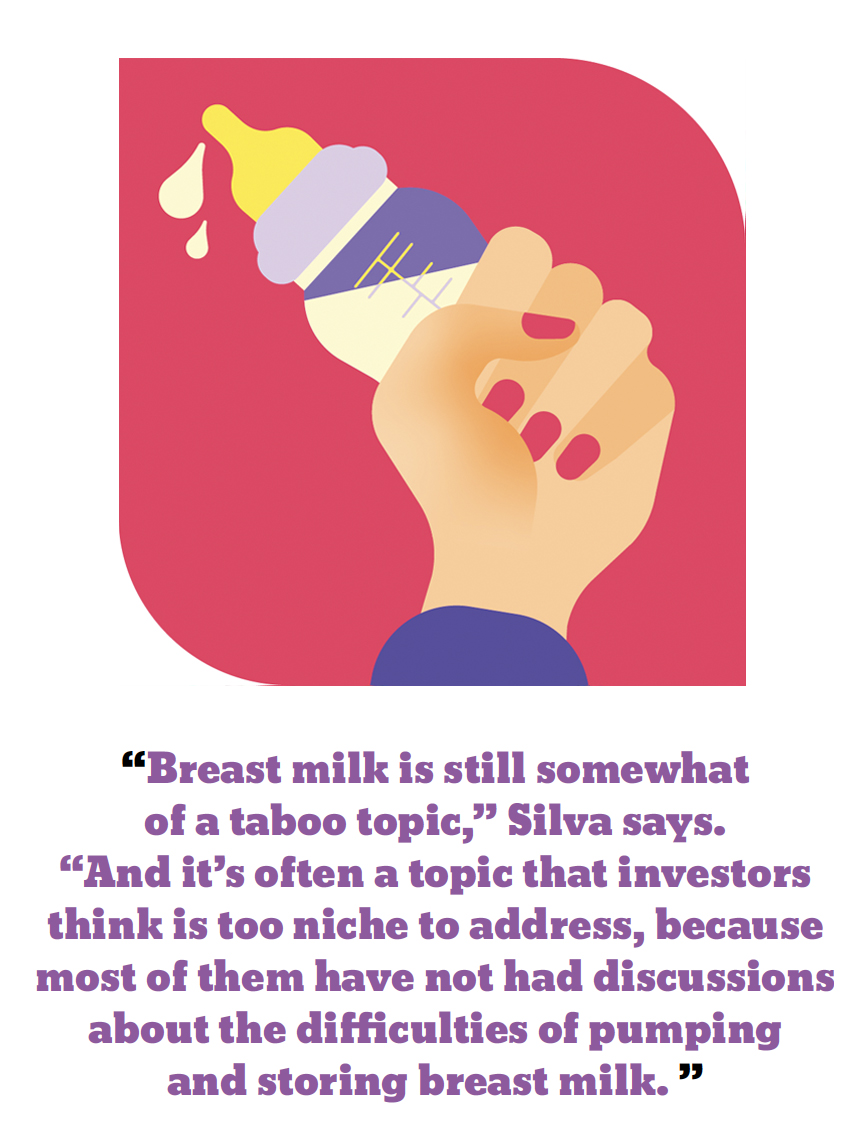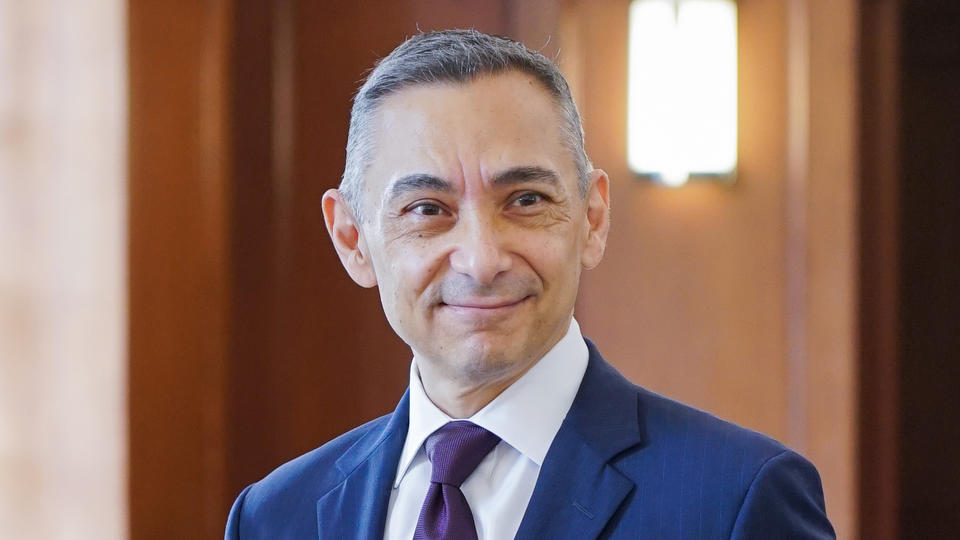
Innovation in Women’s Health

Rice Business alumni are confronting stigmas, spreading awareness and empowering women to take charge of their health.
The story of modern medicine is often a story of women being relegated to the sidelines. In a system that assumes a male patient as the default, women’s health providers and issues have historically been overlooked, underfunded and stigmatized. This disparity has shaped market forces in a powerful way. Even though women account for 80% of consumer purchasing decisions, according to a Boston Consulting Group study, generations of women have struggled to identify products and services that are designed with their needs in mind.
That trend is changing. In the past decade, a growing number of “FemTech” startups have emerged to offer innovative products, services, research and therapeutic treatments related to contraception, fertility, pelvic and sexual health, maternal health, oncology and overall wellness. Nonprofit organizations have also stepped up to fill in the gaps.
Rice Business alumni are at the forefront of this new wave of innovation, writing a new chapter in health care that draws women off the sidelines and places them front and center.
Building a Movement
For Runsi Sen ’04, personal tragedy ignited a global effort. In 2009, she lost her mother to ovarian cancer only 11 months after diagnosis. Several years later, she founded Ovarcome, a Houston-based ovarian cancer foundation that raises global awareness, funds research in search of a cure and provides financial assistance to ovarian cancer patients across the globe.
Every year, approximately 300,000 women worldwide are diagnosed with ovarian cancer. More than half ultimately succumb to the disease. Those who are fortunate enough to catch it in Stages 1 or 2 have more than a 90% survival rate over five years, but catching it in time is easier said than done. With few screening or early detection options available, early prevention hinges on recognizing vague, nonspecific symptoms as pieces of the same puzzle.
“For decades, people have been calling ovarian cancer a silent disease,” Sen says. “This is a misconception we are working hard to eradicate. It is not silent.”
One of Ovarcome’s greatest achievements is to popularize the acronym “BEACH” to refer to the primary symptoms of ovarian cancer: bloating, early satiety, abdominal/pelvic pain, changes in bowel/bladder habits and heightened fatigue.
Ovarcome has spread the word about early warning signs to more than 2 million followers on social media and thousands more who attend global seminars and events. Reflecting on the impact of Ovarcome, Sen remembers speaking to someone who had shared BEACH with a cousin who was experiencing symptoms. Not long after, her cousin was diagnosed with Stage 1 ovarian cancer. Sen can recall dozens of similar stories.
But raising awareness doesn’t end at prevention, she notes. It also involves making patients aware of ongoing clinical trials, connecting them to holistic medical programs that improve survival rates, and facilitating genetic testing. “Our goal is nothing less than to disrupt the status quo by shifting patterns of thinking and helping patients advocate for themselves,” she says.
Changing the Game
Alongside the rise of trailblazing startups and nonprofits that are geared toward women’s health, there is also a growing emphasis on general health issues that disproportionately affect women.

Joanna Nathan ’19 is preparing to launch a company called Prana Thoracic, which has developed a new surgical tool to diagnose and intervene in lung cancer. When a CT scan spots a suspicious pulmonary nodule, it’s challenging to diagnose without surgery. The smaller the nodule, the more difficult it is to excise and diagnose — like “trying to find a pea in a loaf of bread,” Nathan explains.
In the best-case scenario, a needle can remove enough of it to reach a diagnosis. Often, though, physicians remove the entire wedge of the lung where the nodule is located. While this surgery can save lives, it permanently impairs lung function. The minimally invasive tool developed by Prana Thoracic can “core down” to remove a much smaller portion of lung tissue, leading to an accurate diagnosis without long-term repercussions.
Prana Thoracic’s technology will benefit women in particular, says Nathan. Lung cancer remains the primary cause of cancer in women: more than ovarian, uterine and breast cancer combined. But the original criteria developed for lung cancer screening left women vulnerable. Women are younger than men, on average, when they develop lung cancer, so the recommended screening age of 55 left more women at risk. These guidelines shifted last year, lowering the age to 50 and significantly expanding the population eligible for CT scan screening.
Currently, Nathan is raising a new round of funding to prove the efficacy of its product in human studies. While there is still ground left to cover, Nathan is encouraged by the surge of public and private funding directed toward women’s health. “Over the past decade of working in the health care startup space, I have seen more and more founders and investors who have decided to make women’s health a priority,” she says. In the next decade, she expects to see a slew of new health care technologies and products that address historic gaps and inequities. “It will be exciting to see these innovations come to market and change the game for women’s health. Times are finally changing.”
Empowering Mothers
The status quo is already shifting when it comes to health issues men don’t experience — issues like menstruation, menopause, and of course, pregnancy. Pedro Silva ’12 and Abbey Donnell ’17 both founded companies to serve nursing mothers: a massive share of the population whose needs have historically been overlooked.
In 2019, Silva and his wife, Berkley Luck, co-founded the breast milk freeze-drying company Milkify. Luck came up with the concept for Milkify when a colleague struggled to pump and store breast milk after returning to work from maternity leave. She realized breastfeeding was something of a ticking time bomb: Nursing mothers have to pump often to maintain their supply and store their milk properly, so it doesn’t spoil. Attempting to transport frozen milk only increases the pressure.
With a Ph.D. in molecular biology, Luck was perfectly positioned to reduce the stress of nursing mothers. She realized that by freeze-drying breast milk, she could create a powdered version with the same biological features. In fact, research suggests, freeze drying breast milk preserves nutritional value even more effectively than storing it in a freezer.
Silva and Luck discovered a milk bank overseas that had been freeze-drying breast milk for decades to donate to mothers who need it. By adapting the milk bank’s process and augmenting it with new technology, they created a way for nursing mothers to store breast milk for up to three years with no refrigeration. Their greatest concern was contamination, as infant nutrition leaves no room for error. With safety in mind, they developed a unique process for freeze-drying breast milk in individual bags, which avoids direct contact between the milk and equipment. This packaging process is FDA-compliant and has a patent pending.

From their manufacturing facility in Houston, the Milkify team has served more than 1,000 nursing moms and processed 100,000 bags of milk over the last year. While Silva and Luck have been successful in expanding their business, they’ve found that potential investors are sometimes skeptical. “Breast milk is still somewhat of a taboo topic,” Silva says. “And it’s often a topic that investors think is too niche to address, because most of them have not had discussions about the difficulties of pumping and storing breast milk. They have no idea how many families struggle with this.”
Silva also fields questions from investors wondering why a man is working to solve a problem with breast milk. “This question assumes that men can’t empathize with the women in their lives, which couldn’t be further from the truth,” he says.
A Universal Need
Abbey Donnell has found that misconceptions fuel many of the challenges of breastfeeding. “People think that because breastfeeding is natural, it comes easily,” she says. “But it’s actually quite difficult. Breastfeeding is both time intensive and tied to a specific schedule, since mothers have a physical need to pump.” Depending on the age of her child, a breastfeeding mother typically needs to pump for about 20 to 30 minutes every two to three hours. When it comes to pumping breast milk throughout the workday, the well-being of both the nursing mother and her baby is at stake.
Even though hourly breastfeeding employees are protected by the federal Fair Labor Standards Act in all 50 states, many companies have failed to extend the same protections and courtesies they do for other groups of employees. When many of Donnell’s friends and coworkers began having children, she noticed that no matter where they worked, they struggled to access adequate spaces and resources for breastfeeding. In an office with an open floor plan, she discovered, women are often forced to use conference rooms and bathrooms to pump.
Donnell set out to create what should have existed for her friends. In 2017, she launched a company called Work & Mother, which helps building managers install spaces equipped with private nursing suites for mothers to reserve. Each room contains hospital-grade pumping equipment so users can avoid lugging a separate bag to work every day. “We are helping employers take a major step toward becoming more inclusive and keeping more women in the workforce,” Donnell says.
Work & Mother has installed facilities in Houston, Austin and Dallas, with plans for corporate locations in New York and other major cities. “Our goal is to make mothers’ rooms as common as Starbucks,” Donnell says. “There is such a universal need for what we offer.”
Going Natural
When it comes to supporting women’s health, Caroline Goodner ’92 hasn’t shied away from stigma. She is the founder and CEO of OrganiCare, an Austin-based company that offers all-natural, organic products for common conditions like genital herpes, yeast infections and bacterial vaginosis. She founded the company in 2016 with one partner who has medical device experience and another who contributed technology refined in Italy: a type of oxygenated olive oil that is antibacterial, antifungal and antiviral.
This ingredient was originally used for wound care in Italy, but Goodner and her co-founders recognized its value for recurrent infections. In 2017, they made their first foray into the women’s health sphere with a product called FemiClear, developed to treat yeast infections naturally. In comparison to miconazole, the active ingredient in standard yeast infection treatments, FemiClear kills multiple yeast strains without causing antifungal resistance with frequent use.
Several years later, OrganiCare launched a version of FemiClear to treat genital herpes outbreaks. “One in five women has herpes, but there are few conditions more stigmatized,” says Goodner. While no medication can prevent herpes outbreaks, FemiClear can reduce their length and severity. It can also provide relief for bacterial vaginosis, a common condition that often produces a fishy odor.
“Doctors often address these types of conditions like they don’t really matter, but they can take a real physical and emotional toll,” says Goodner. “We’re doing what we can to help women feel more confident and get back to their fighting selves.”
Asma Ishaq ’02, the CEO of Modere, is similarly committed to offering natural products in the realm of beauty and personal care, health and wellness, and household cleaning. For the growing numbers of consumers seeking to optimize gut health, Modere has developed products like Axis™ TreBiotic to offer a pre-, pro- and post-biotic all in one. For those hoping to improve their skin’s elasticity and increase joint mobility, Modere offers Liquid BioCell®, a next-generation product that mirrors the composition of the body’s own cartilage to allow for better absorption.
With a presence in 44 countries, Modere is one of the fastest growing female-run companies in the world. As her company expands into new markets, Ishaq is looking forward to expanding its offerings as well. “We try to think about our customers’ future, not just present,” she says. “By giving them clean, safe products and tools, we help them live healthier lives in the long run.”
Alumni Podcast
Listen to interviews with Caroline Goodner, Runsi Sen, Abbey Donnell and other alumni in the field of women’s health on the Rice Business podcast, “Owl Have You Know.”


